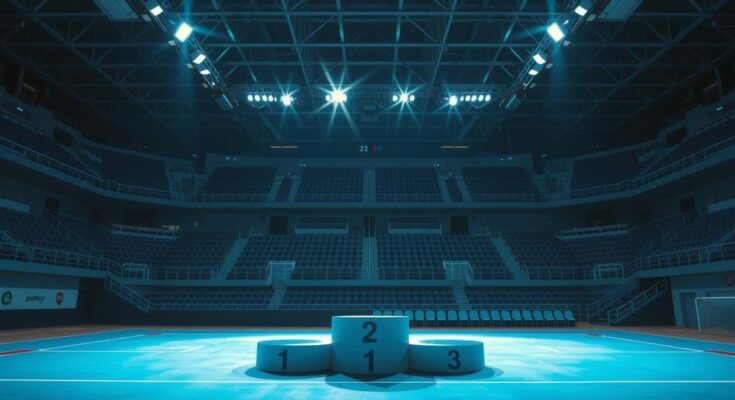The Ukrainian government has enacted a decree prohibiting its national sports teams from competing in international events that also feature athletes from Russia and Belarus. This decision is a direct response to Ukraine’s ongoing opposition to the International Olympic Committee’s attempts to allow Russian and Belarusian athletes to participate as neutral competitors without national symbols. The move puts pressure on global sports organizations, forcing them to choose between welcoming Russian and Belarusian athletes or risking a potential boycott from Ukraine.
With Ukraine previously indicating it would strive to prevent its athletes from facing Russians and Belarusians, the IOC cautioned that such a decision would harm only the Ukrainian athletes. The decree specifically pertains to national delegations, and it remains uncertain how it will impact individual players in professional tennis, where athletes from Russia and Belarus currently compete neutrally.
Furthermore, the implications of this decree on team sports like men’s soccer are still vague, especially as Ukraine is engaged in qualification rounds for the European Championship. While the European soccer body UEFA permits Belarusian participation, it excludes Russia, and both Ukraine and Belarus are placed in separate qualifying groups, minimizing any direct conflict for now.
Critics, including skeleton racer Vladyslav Heraskevych, lament that a Ukrainian absence in international competitions would forfeit Ukraine’s presence on the world stage, thereby allowing Russia and Belarus to propagate their narratives. Heraskevych stated that this represents a retreat from international sporting platforms, equating it to waving a ‘white flag’ in the face of adversity.
Initially, the IOC had recommended excluding Russian and Belarusian athletes for safety reasons but has shifted to advocating for their reintegration as neutral participants. While it emphasizes the ban’s discriminatory implications, it continues to support restrictions against those with military affiliations, although individual sports are not bound to its guidelines. The IOC is still deliberating on decisions concerning the Paris Olympics.
Ukraine had previously boycotted an Olympic judo qualifier in protest against the inclusion of Russian athletes, especially those linked to the military. There remains a strong possibility that Ukraine may opt for another boycott during the Paris Olympics rather than compete against Russian athletes, reflecting the seriousness of their stance against the situation.
Ukraine has barred its sports teams from competing against athletes from Russia and Belarus, responding to the IOC’s push for their reintegration into international events. This decree, while potentially isolating Ukraine, aims to uphold national dignity amidst geopolitical tensions. Critics argue an absence from sports could enable opponents to control narratives. The IOC’s shifting position adds to the complexity as Ukraine considers future boycotts, including the Paris Olympics.
The Ukrainian government’s ban on competing with athletes from Russia and Belarus encapsulates its defiance in the face of ongoing conflict. While the IOC’s recommendations have shifted toward inclusion, the tensions remain palpable, threatening future international competitions. As Ukraine grapples with these decisions, the potential for boycotts looms large, showcasing sports as a significant battleground for national identity and political expression.
In the ongoing geopolitical crisis following Russia’s invasion of Ukraine, sports have become a tool for political dialogue. The International Olympic Committee’s attempts to reintegrate Russian and Belarusian athletes into international sports have faced fierce opposition from Ukraine. With national pride at stake, Ukraine is determined to protect its athletes and its narrative on the global sports stage, reflecting broader tensions between the countries.
Original Source: www.nbclosangeles.com



